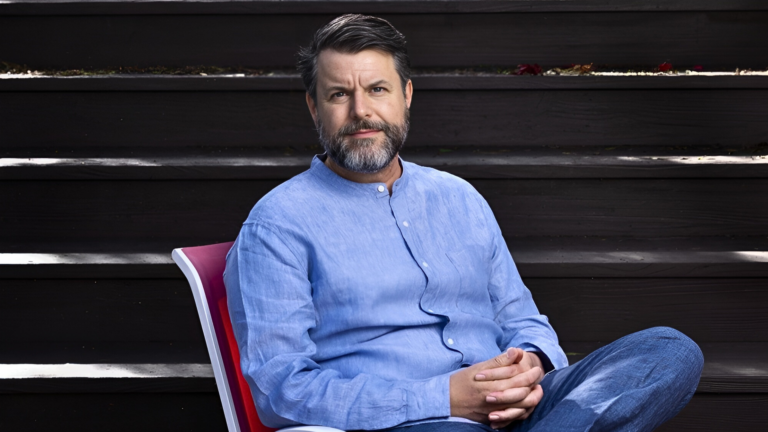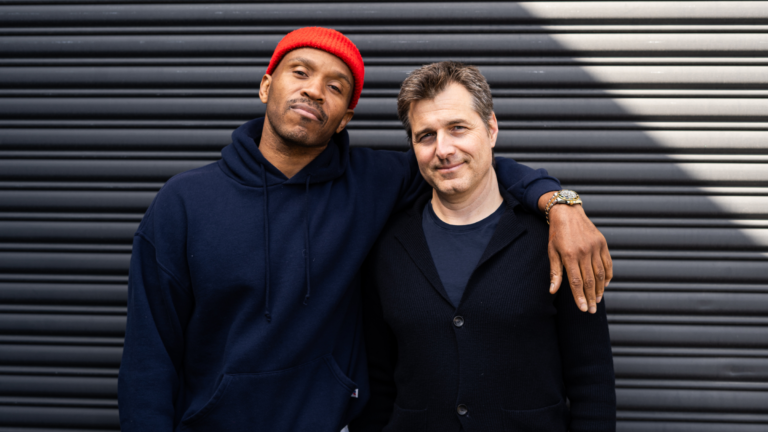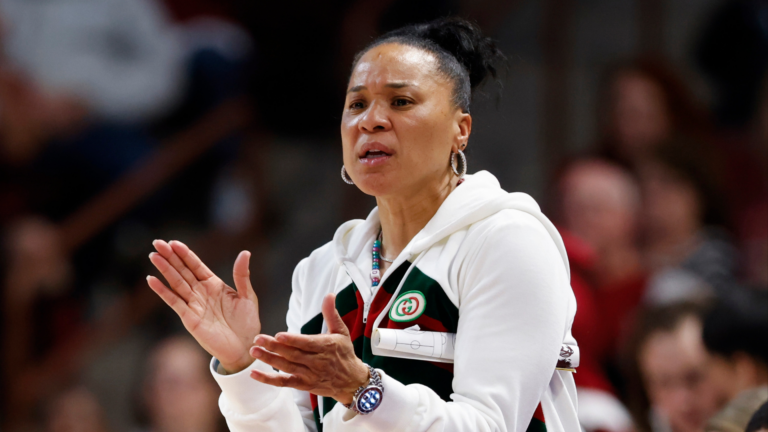This week’s conversation is with Dean Karnazes, an acclaimed endurance athlete and NY Times bestselling author, who has pushed his body and mind to inconceivable limits.
TIME magazine named him one of the “Top 100 Most Influential People in the World.” Men’s Fitness hailed him as one of the fittest men on the planet. Stan Lee, of Marvel Comics fame, called him, “A real superhuman.”
Among his many accomplishments, he has run 50 marathons, in all 50 US states, in 50 consecutive days and he’s run 350 continuous miles, foregoing sleep for three nights.
He’s run across the Sahara Desert in 120-degree temperatures, and he’s run a marathon to the South Pole in negative 40 degrees.
On ten separate occasions he’s run a 200-mile relay race solo, racing alongside teams of twelve.
He has raced and competed on all seven continents of the planet, twice over.
So you might be thinking, how I could possibly relate to Dean? And that’s what makes this conversation beautiful.
This isn’t about the how but about the why…
We discuss motivation, purpose, meaning, overcoming hardship, and so much more.
“To me, running is meditation. I’ve tried meditation and I can’t do it, unless I’m moving. Motion stirs emotion. To me, it’s almost like a meditative trance I enter when I’m doing these long runs.”
In This Episode:
What’s he searching for?
I’m a pretty fierce competitor when it comes to competition. But I balance that with just the pure love of running. I always say to people, “Running is worthwhile in itself.” I think it’s very essential to the human experience. If you look at where we came from, we were used to being outdoors, always. I think very few people have spent from sunup to sundown outside. How many people have been outside for 24 continuous hours? Very few. Again, it’s essential to where we came from. When I’m doing these, some people would call it crazy endeavors, I feel like I’m supposed to feel. I feel very human. Watching the sunrise is magical and tracking it throughout the course of the day as you’re moving through nature, watching the sunset, watching the moonrise and then running all night and watching the sunrise the next morning, is spiritual in a way. I would encourage everyone to try it. It changes who you are.
What’s his relationship with pain look like?
There’s a quote of mine, “Doesn’t running hurt?” My answer is, “It does if you’re doing it right.” You think of running, you think of what? Pain. A runner has a very unique and intimate relationship with pain and pain tolerance and how you deal with pain. Because inevitably on every single run, it’s going to hurt. I’ve had so much pain in my body… that every single cell radiated pain. To the tip of my nose, it hurts, just everything hurt. If you can get beyond those points, it’s almost like a metaphysical experience. I’ve gone from being in such intense pain, to a feeling of nothingness of lightness of numbness, if you will, and having no pain, in the course of half an hour. Running these extreme runs like the 135-mile Badwater Ultramarathon across Death Valley, it does things to your physiology and to your psyche.
When does he feel most alive?
I’m out on a trail by myself, in the wilderness, exposed and vulnerable and that’s when I feel most alive. It’s a very human experience. I don’t think later on, chase down a rabbit and tear it into pieces and eat it. That experience is gone for most humans right now on earth. I have a very intimate relationship with nature. I’m more comfortable in nature than I am around people. But most do not have a relationship at all with nature or their relationship with nature is maybe walking around a park. It’s not the uncultivated wild nature where we came from. If you can put yourself in a situation like that, in a setting like that, it brings up these almost primordial feelings within you.
The importance of suffering
I think there’s salvation in suffering. There’s magic in misery. I think we have thought in Western society, that if we had every convenience available to us, every comfort, we’d be happy. I think in a lot of ways, we’re so comfortable, we’re miserable. There is no struggle, there is no difficulty in our life. To a runner, they know that you’re most alive when you’re struggling and you’re faced with hardship. That runs very counterintuitive to how we’ve structured our society and our institutions.
Why has he organized his life in such a manner?
I don’t know if it’s just a natural progression. I’m an introvert by nature. A lot of it is just that I’m more comfortable by myself and that’s how I’ve structured my life is just a lot of alone time. But through my writing, I think I’ve been able to touch other individuals. I think that some of my work has been pigeonholed as running, it’s a runners book where I think it tackles deeper questions about the human condition. In a lot of my books, I address that. But I don’t think they’re widely read, because I don’t position them as that. I don’t position them as self-help or prescriptive books. It’s largely just storytelling.
His purpose
Although running long distances by yourself is very self absorbing, ultimately, I think my mission is to kind of spread this joy to others that I’ve experienced. And this realm of experiences through running that you can experience is accessible to all. And the joy and the suffering. I think that rich range of experiences, ultimately enriches someone’s life. If I can share it in words and people can read it and try it themselves, it makes me feel like I have a purpose in life. It makes me feel fulfilled.
Why running is a metaphor for life
Some days I’m happy and that’s fine. Other moments I’m not happy, and that’s fine as well. I want to experience the most intense emotions possible, both the good and the bad. I think that running, it’s almost like a metaphor for life when you go and run 100 miles. Most people can’t even imagine running 100 miles nonstop. But when you run 100 miles nonstop, you experience all of these things. The more exhausted you become and the more the ego is beaten out of you, the richer that experience becomes.
His process for getting to know himself better
Change is hard, right? We tend to just revert to what’s comfortable, to get through life. We all have our protectionism and those mechanisms we turn to, in certain situations that just make it easier to navigate through. To me, you throw yourself at these experiences over and over again. I think the oracle of Delphi said, “Know thyself.” Well, how do you know thyself? You know thyself by putting yourself in uncomfortable situations and revealing to yourself who you really are, by facing different and hard and unusual circumstances.
Why getting uncomfortable is critical
I think that we need to shift the paradigm on comfort. I think that the only way you’re going to grow, any of us are going to grow, is by putting ourselves in situations where we feel very uncomfortable. The statistics, I think say that, people would rather face death than public speaking. People still fear of public speaking, than have the courage to be a public speaker. Do something and maybe even fail at it and feel like a fool. But experience those feelings that are outside of your normal range of feelings. That’s how you grow. Outside your normal range of emotions as well.
It all comes down to…
Living your life to the best of your ability.
How does he define mastery?
I don’t think that mastery is something you ever achieve. I think it’s a pursuit that you constantly, constantly move toward. Again, I think that it’s a journey, mastery. It’s not an end in itself.


